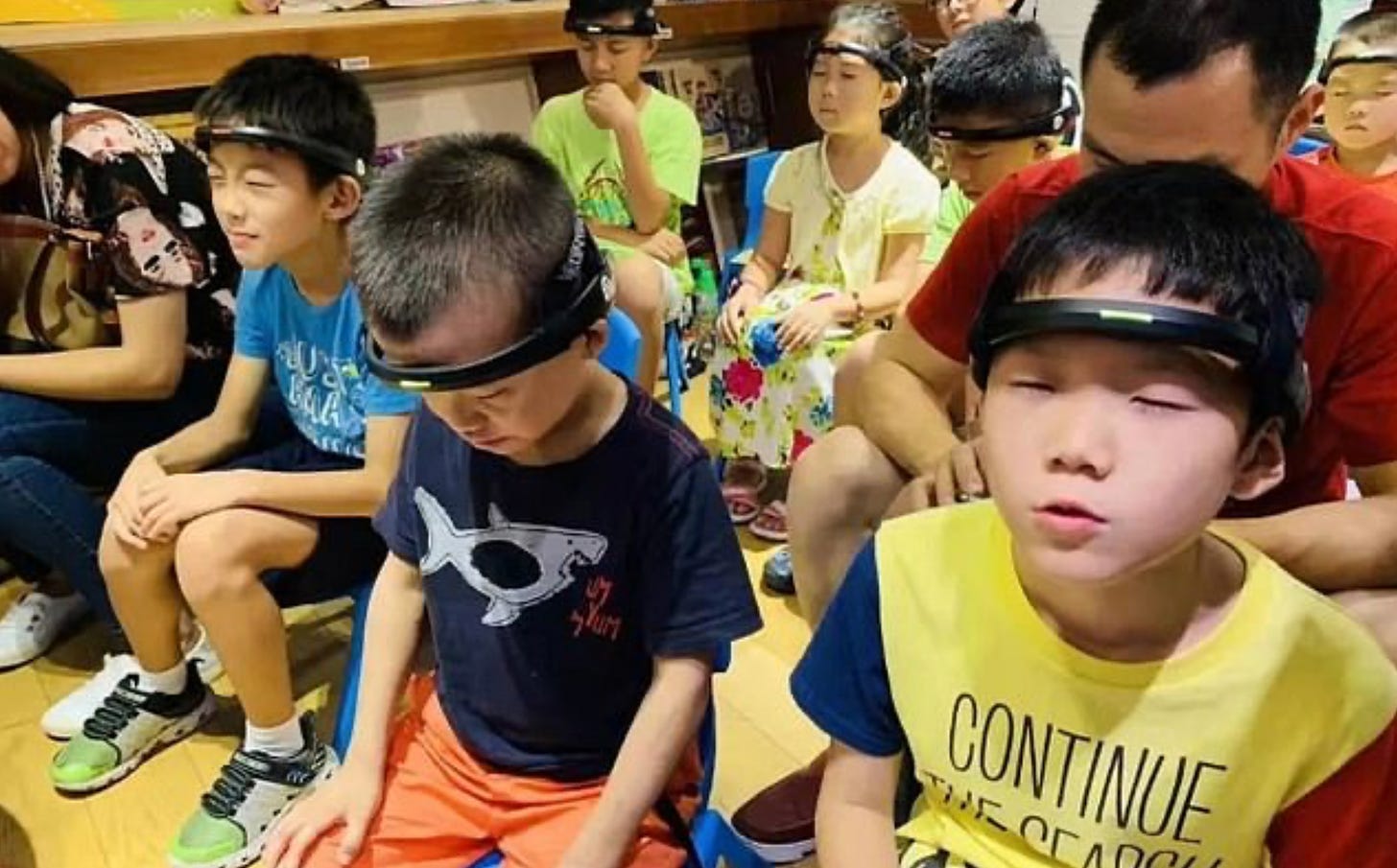Did you know that in China it is not uncommon for train conductors to wear sensors embedded in their caps? Or for construction workers to have them in their hard hats? In fact, truckers, pilots and miners are already subject to this new technology, not just in China but increasingly around the world.
These ‘fit-bits for the brain’ are an accelerating trend, extending the penchant we have for quantifying our physical bodies, to our cognitive functions too. The difference here is that much of the monitoring, analysing and diagnosing of our cognitive functions will be carried out not by the individual user but by the companies for whom an individual works.
There is a growing trend for employers to want to get into the minds of their employees.
Much like we saw in the Covid era, simple everyday tasks and movements are now becoming subjected to data collection and analysis. And much like the propaganda we saw during that same time, our behaviours are being managed, as we are socially engineered to act in certain ways and not in others. But manipulation and behaviour only goes so far. What if someone could control the actual thoughts that directed that behaviour – sort of cutting out the middle man?
Little wonder then that employers, whether they be public sector or private sector, would be interested in the emerging technologies for measuring and monitoring raw brain wave data. Neurotechnology, once well-intentioned as a tool for individual empowerment, could in the wrong hands, become a tool of workplace surveillance, oppression and control.
Take for example, brain wellness programmes which are increasingly popular. Organisations may use this technology for monitoring employee stress levels, or to help understand focus and improve workers’ attention. But who collects the brain data and to what use is it put?

I spoke with Dr Ramses Alcaide, co-founder of Neurable, a Boston-based brain-computer interface company, keen to make technology that helps you better listen to your own brain. Neurable has partnered with headphone manufacturers to enable the collection of brain data from around users’ ears. Within the next five years they hope that wearable devices like headphones, earbuds, glasses or bike helmets, will have this neurotech already built in. That will not only help you monitor your cognitive health but enable you to thought control your devices too.
When it comes to what we mean by ‘cognitive health’ Dr Alcaide names ‘focus’ as today’s big issue, often caused by burnout and mental fatigue. He told me, “..we met call centre staff with a 30% retention rate…we met with a lot of college students many of whom are burnt out from classes…and aircraft controllers they get tired, in fact 30% of accidents in the Air Force are caused by fatigue”.
He went on to tell me of a recent study where Neurable demonstrated that they could identify fatigue, even alerting them that a person was about to fail a task 30 minutes before the event occurred, “It’s something as simple as understanding when a person’s focus starts to go downwards, then telling them to take a break, because by the time we actually take a break, we already feel tired and we should have taken a break significantly earlier”. The hope is that for employees such as airline pilots, this kind of monitoring would help reduce the number of accidents.
It may be that we adopt these technological capabilities at the level of the individual, there are now many companies such as Neurable working to make brain data monitoring an integral part of everyday consumer devices that we can use at home. Neurable and other such responsible and thoughtful technology companies have only good intentions. But I still worry that much of the neurotechnology adoption will take place at work and in schools, where the individual cannot really opt-out.
So what to do? As I have been arguing for a few years now, countries should be looking to protect the mental privacy of their citizens, and look to examples like those of Chile to develop public policies that will do just that. This technology will be adopted by consumers in their personal lives, but we will all have our rights infringed if we do not get ahead of the wider implications of neurotechnology in public life.
It is in Chile where lawmakers are proposing legislation designed to establish a citizen’s rights to personal identity, free will, and mental privacy, ensuring overall that neurotechnology cannot be used to infringe a person’s mental or physical integrity. One approach being discussed is that of giving brain data, ‘organ status’ in the hope that opting in to any procedures or processes that collect brain data, will provide similar protection to bodily autonomy. Having said that, one of the lessons we learned from the policies adopted during Covid, is that such autonomy is easily infringed by those who would champion public health and keep us safe from harm (or from harming ourselves – as they would see it).
I have little confidence that developing ‘neuro rights’ such as these will move forward in the UK at the same pace as neurotechnology, so all we can do is make as many people as possible aware that this is on the horizon, and prepare ourselves to once again fight for our human rights over those of the machines.
**Source: Everyday Technology That Will Allow Your Boss To Read Your Mind
